Does eating lychee raise or lower blood sugar?
It's lychee season again.
On this day, one of my patients came to me with a bag of bright red lychees and said, "Teacher, I heard that lychees can lower blood sugar, and my blood sugar is high, so it's just the right time for me to eat lychees to lower it, so I can eat it, right?
I said: How do you feel about the flavor of lychee?
Patient: sweet! It's delicious!
It seems like she really likes it!
I said: Yes! Lychee is very sweet, because it contains a lot of fructose, fructose is also sugar, will also rise blood sugar, lychee glycemic index is not low. You can eat, lychee is a fruit well, count it into the fruit share, eat 5 per day, do not exceed the amount ah!
The patient nods: ah ah~! Staring at the lychee in her hand, she still has questions.
I said: eating lychee will cause low blood sugar is not false, this phenomenon is called "lychee disease". Since it is called a disease, it shows that for the abnormal state, with the "disease" to cure your diabetes, that can not bring harm to your body? Moreover, lychee make blood sugar low premise is a large number of lychee intake (blood sugar will rise) lead to hypoglycemia, equivalent to your blood sugar in the roller coaster, first pushed high and then fell to the bottom, which itself is the situation we want to avoid, to cause this state is counterproductive. Not to mention that hypoglycemia can kill you if you don't get it right.
PATIENT: Oh oh! That's right, then I won't eat.
I said: you like to eat, as long as you do not overdose you will not have problems with lychee disease. Remember to eat 5 a day, not on an empty stomach ah.
Patient: Uh-oh! Okay, thanks ah!
Witness her happy departure.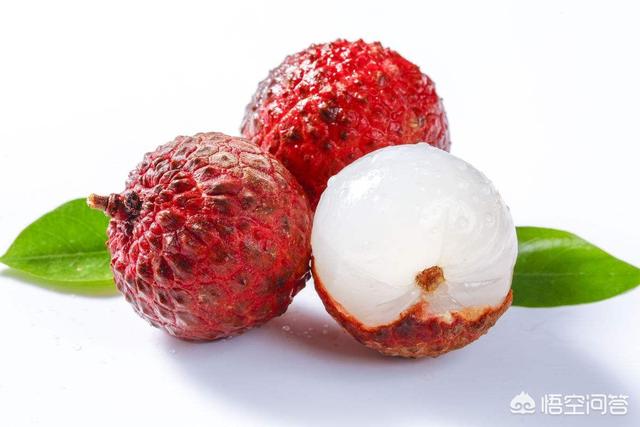
The principle of lychee lowering blood sugar
1. Lychee sugar content of more than 16%, which contains a large number of fructose, fructose can not be directly utilized, must be converted into glucose by enzymes, a large number of lychee, too much fructose into the bloodstream, the enzyme demand exceeds supply, and then the "flood", resulting in the human body's blood glucose (glucose) content than the normal reduction of many.
2. A large intake of fructose will stimulate a large amount of insulin secretion, resulting in the body of glucose consumption, blood glucose reduction, while fructose can not be converted, glucose green and yellow, further promote hypoglycemia.
Lychee disease appears in normal people who eat a lot of lychee, manifested as a large reduction in the amount of food, pale, cold hands and feet, sweating, and even coma, cramps, respiratory failure, death, and so on. Insulin secretion function of diabetic patients is already bad, eat more lychee will only make the condition worse.
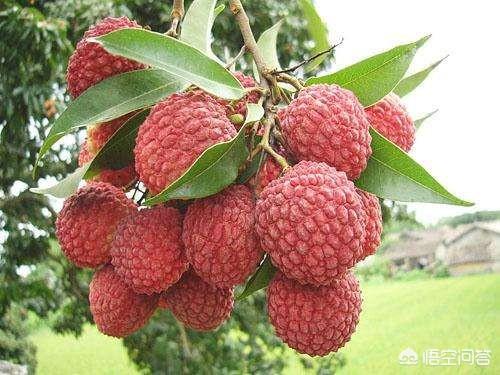
Low blood sugar ≠ lowered blood sugar
Hypoglycemia is not a hypoglycemic effect.
Hypoglycemia is a state in which the blood glucose index is below the below normal range.
Hypoglycemia is a state in which blood glucose indicators fall towards the normal range.
Diabetics should lower their blood sugar and control it in the normal range or a desirable range, and should avoid hypoglycemia, especially in elderly diabetics, pregnant diabetics, etc.
In summary, eatingLychee raises blood sugarDiabetics can eat lychee.The recommended daily intake of lychee is 125 grams (equivalent to 25 grams of rice made of rice), not excessive.
Be careful not to eat lychee on an empty stomach.
Normal people should not eat a lot of lycheeIn order to avoid causing lychee disease, when lychee disease occurs, the mild cases can be relieved by timely replenishment of sugar water, while the serious cases must go to the hospital for treatment.
The lychees referred to above are fresh lychees, not lychee products.
Image Source Web.
Author's introduction: He Li, supervisor nurse of Sichuan Civil Rehabilitation Hospital, clinical dietitian, senior skill public dietitian, member of Chinese Nutrition Society, member of Sichuan Nutrition Society, and the fifth student of Wang Xingguo Nutritional Special Training Class.
This problem is actually quite interesting, lychee's sugar content is high, the glycemic index is also relatively fast, it is elevated blood sugar. However, eating too much lychee may lead to hypoglycemia, which is called "lychee disease". When lychee disease occurs, it usually manifests itself as a large reduction in the amount of food, then dizziness, nausea, pale, and in severe cases, convulsions and fall into a coma.
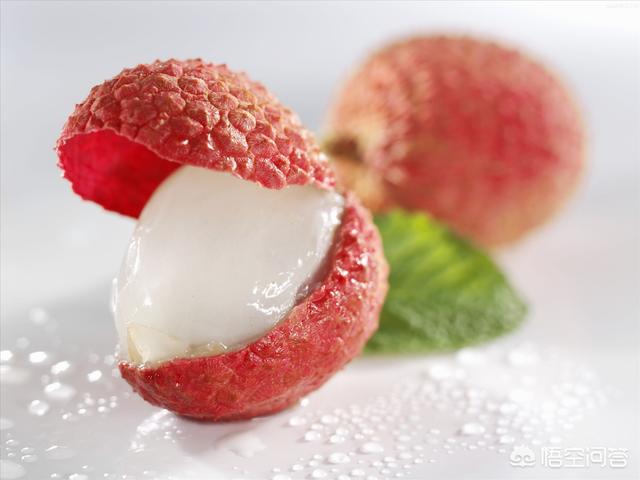
In fact, lychee disease is a kind of hypoglycemia, because lychee contains a large amount of fructose, fructose must be metabolized and converted into glucose by the liver before it can be utilized by the body. Once a large number of lychee consumption, it will lead to a large number of fructose in the body waiting for the liver to convert, the liver can not be consumed for a moment, it will lead to too much fructose filled with blood vessels, can not be converted to glucose is utilized by the body, and because of the meal size is greatly reduced, thus causing hypoglycemia.
Sugar lovers should not feel that, if they eat too much lychee, they will have hypoglycemia and use lychee to lower their blood sugar, because hypoglycemia ≠ lowering blood sugar! If hypoglycemia occurs in a short period of time due to eating a large amount of lychee, it will lead to a large fluctuation in blood sugar, and this volatility is very harmful to the body.
Sugar lovers should be careful when eating lychee:
1. Don't overdose, a few pills a day is enough. Excessive consumption of lychee is prone to fire, aggravating the symptoms of thirst and dry mouth in sugar lovers.
2. Do not eat lychee on an empty stomach, eat lychee on an empty stomach in excess, may induce "hypertonic coma", eat lychee is best placed between meals as a meal to eat.
3. Don't eat dried lychee. Dried lychee is concentrated lychee with high sugar content.
Read along and give us a like, and feel free to follow SugarManHealth.com!
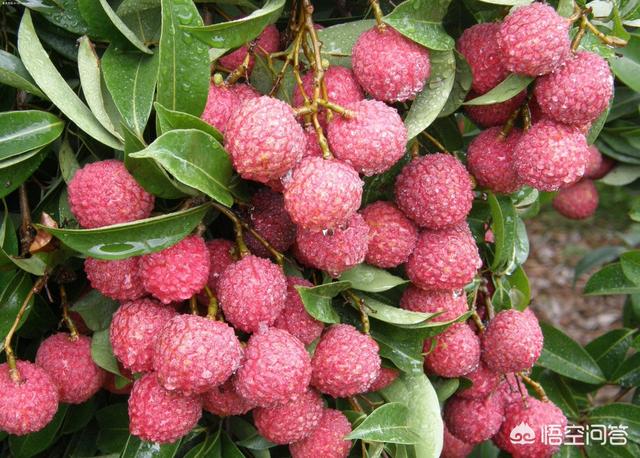
Some people who consume large quantities of fresh lychee may experience a decrease in blood glucose, which is an isolated phenomenon and is not specific to all people who consume lychee.
"Mouthful of lychee three hundred, may as well be long as Lingnan people", this is Su Shi's "Huizhou a great" in the poem, expressing the Lingnan lychee sweet and delicious, people's love of lychee. Right now is a good season to eat lychee, hot summer, put a bag of lychee to the refrigerator to freeze for a while, take out and the guys while eating lychee while enjoying the 2018 World Cup, really a great thing in life. There are also people who think that lychee and dog meat are a perfect match!
Although lychee is delicious, but the amount of food or control, the hospital will occasionally receive some patients who need to be hospitalized because of eating too much lychee, that is, we are not too familiar with the lychee disease.
Litchi is the fruit of the Lychee plant of the Sapindaceae family, which is warm, sweet and sour in nature, and belongs to the heart, spleen and liver meridians; the fruit pulp has the effect of tonifying the spleen and liver, regulating qi and tonifying blood, warming up the middle and relieving pain, and tonifying the heart and tranquilizing the mind. Litchi disease is some people eat a lot of fresh lychee appeared to dizziness, sweating, pale, fatigue, panic, thirst, hunger and a series of symptoms, if serious, there may be cold limbs, pulse, blood pressure drop, and even convulsions and sudden coma. Lychee disease is actually a kind of hypoglycemia, obviously lychee is so sweet, is not the sugar content is very high, why will cause hypoglycemia?
Some studies believe that lychee contains a large amount of fructose, the human body after eating a large number of fresh lychee, fructose content in the blood rose significantly, a large amount of fructose into glucose can stimulate the pancreatic islet B cells to rapidly release a large amount of insulin to make the liver lower blood glucose concentration, resulting in insufficient supply of glucose within the bloodstream, which triggered a hypoglycemic reaction. It is also believed that in the process of conversion of fructose into glucose, hepatic aldolase is consumed leading to insufficiency, fructose-1-phosphate cannot be converted into dihydroxyacetone phosphate and glyceraldehyde, which results in the accumulation of fructose-1-phosphate and in turn inhibits the kinase activity, so that fructose in the blood cannot be oxidized and utilized by the liver and the hepatic release of glucose occurs as an obstacle, and there are also those who believe that lychee disease occurs due to a large amount of food consumption. It is also believed that lychee disease occurs due to a large amount of food, the intake of lychee, the cause of a sudden decrease.
The pathogenesis of lychee disease has not yet been clarified, but its onset is mainly related to the amount of food eaten, so in order to be safe, it is recommended that adults should not consume more than 300 grams at a time, and children should not consume more than five at a time, preferably half an hour after a meal, and lychee on an empty stomach is not recommended. Of course, you can also drink some sugar water before consuming lychee.
The above is only a personal opinion, not as a basis for the use of medication, please use the medication under the guidance of a physician, any questions or views are welcome to leave a comment at the bottom of the article.
The authoritative interpretation of Pharmaceutical Affairs, unauthorized reproduction, plagiarism will be punished.
It's lychee season. Have you all eaten lychee?
Now that the delicious and tasty lychee is on the market, there are a lot of questions about lychee, so does lychee raise or lower blood sugar?
First of all, lychee is very sweet, sugar content is very high, after eating lychee is easy to rise blood sugar. However, eating too much lychee can cause sudden hypoglycemia, also known as "lychee disease".
Lyme disease, caused by sudden hypoglycemia, clinical manifestations of dizziness, palpitations, sweating, particularly serious cases, there will be cold hands and feet, pale, sudden coma, convulsions, and even breathing temporarily stop by life-threatening!
So, why does lychee, which tastes so sweet, cause hypoglycemia when eaten in excess?
First, after a person eats a lot of lychee, his blood sugar will drop drastically due to the stimulation of insulin secretion. And while the body can directly absorb glucose, the main sugar contained in lychee is fructose.
Fructose must be broken down by enzymes in order to be converted into glucose, after eating a lot of lychee, fructose from lychee has not yet had time to be converted into glucose, then at this time the body's blood glucose does not get timely replenishment, the symptoms of hypoglycemia will occur.
Secondly, it is related to alpha hypomethylpropylglycine, a hypoglycemic component contained in lychee itself.
Thirdly, there is another reason that is easily overlooked, which is that if you eat too much lychee, you will have no appetite and eat less, making your fat and protein intake insufficient, and you will also be prone to hypoglycemic symptoms.
Finally, it is still important to remind everyone that although eating lychee can cause symptoms of hypoglycemia, it is absolutely unrealistic to think of lowering blood sugar by eating lychee because when the fructose contained in lychee stays in the human body long enough, it will still be converted into glucose, and eventually the blood glucose will still rise.
If you experience any of the above symptoms of Lychee Disease, remember to get to the nearest doctor immediately and drink sugar water to relieve the symptoms while waiting for the doctor to arrive.
Of course the most important thing is, don't eat too much, how much is too much? That is, it is best not to exceed 300 grams (i.e. 6 taels) a day for adults, and even less for children. (66)
It can raise blood sugar, but if you eat too much of it, it can lead to hypoglycemia and even problems such as dizziness, which is often called lychee disease.
Lychee is delicious and very sweet. It has a high sugar content. Lychee contains up to about 17% sugar. High sugar content increases the glycemic load, so it is inevitable that your blood sugar will rise after eating lychee.
However, many people will say, why after eating lychee will be low blood sugar, dizziness problem? Many people will refer to this phenomenon as "lychee disease". Lychee is so high in sugar, why would it cause hypoglycemia?
There are two possible reasons for this.
One is because of eating too much. Because of the sugar in lychee, especially fructose content is very high, after eating too much lychee will stimulate insulin secretion, in the insulin down to pull low blood sugar often can not be able to collect the strength in time, so that the blood glucose drop too low, and ultimately cause symptoms of hypoglycemia.
Another reason is because lychee contains two toxins - hypoglycin-A (Hypoglycin-A) and α-(Methylenecyclopropyl) glycine (MCPG).
Hypoglycin A (Hypoglycin-A) is a non-protein amino acid found in plants of the Sapindaceae family. Large amounts of Hypoglycin-A are toxic, and the toxic effects of Hypoglycin-A arise from its metabolite, methylenecyclopropylacetic acid, and the esters produced during its oxidation in combination with carnitine or coenzyme A, which block acetyl-coenzyme A dehydrogenase, which is required for gluconeogenesis.
Alpha-methylenecyclopropylglycine is a metabolite of hypoglycine A (Hypoglycin-A), which is also used as a drug, and which has blood sugar lowering properties.
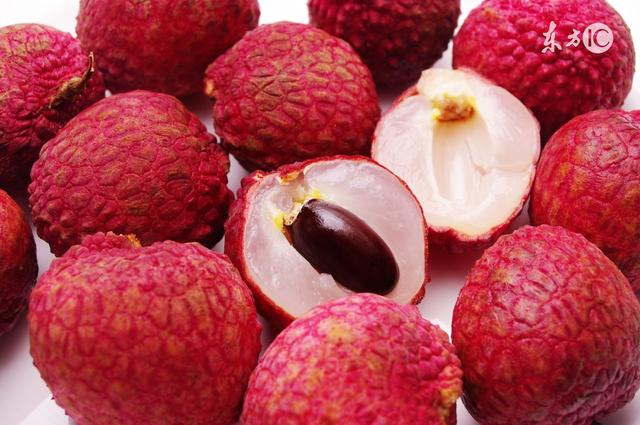
In 2015, the U.S. Centers for Disease Control and Prevention (CDC) conducted a study on childhood eruptive encephalopathy occurring in the Muzaffarpur region of India and found that the children's illness may have been due to the ingestion of a certain toxin in lychee.In 2017, research published in The Lancet Global Health analyzing nearly 400 cases concluded that lychee disease is associated with sub Glycine and MCPG, both of which cause hypoglycemia by blocking the production of glucose through gluconeogenesis.
Therefore, you should not eat too much lychee.
The idea that eating lychee lowers blood sugar is wrong.
After answering the question of lychee disease some time ago, many people think lychee can cure diabetes, but low blood sugar is not the same as lowering blood sugar.
Therefore, the idea that diabetics eat lychee to lower sugar is wrong, and eating lychee is not a cure for diabetes!
There is a principle here that people don't get. Lychee contains a large amount of fructose, fructose can only be utilized by the body through the conversion of liver enzymes into glucose. Eat a lot of lychee on an empty stomach, fructose accumulates in the blood vessels, can not be converted to glucose in time.
After eating a lot of lychee in a short period of time to increase satiety, appetite suppression, further results in aggravation of hypoglycemia, serious cases caused by hypoglycemic shock. Therefore, a large number of eating lychee can cause hypoglycemia, but if the human body can tolerate, then these lychee in the fructose later or will be converted into glucose by the body to utilize, produce heat is not less, inevitably and ultimately make the blood glucose, so understand, only to understand that lychee is not a hypoglycemic effect, but can not be converted into glucose in a timely manner.
If a small amount of lychee is consumed, the body still has the ability to convert it into glucose in time, and blood sugar will definitely rise.
So eating lychee will eventually raise blood sugar. It's just that a large amount of intake in a short period of time can cause symptoms of hypoglycemia, and a momentary hypoglycemia doesn't mean hypoglycemia, which are two concepts.
So can diabetic patients eat lychee?
The answer is yes, usually about 5-10 between meals.
I'm Dr. Small Eyes.
Specializing in cardiovascular diseases
Commitment to public health
If you like my answer, you can click on the upper left corner to see more about cardiovascular diseases
Many diabetics must have heard that eating lychee can lower blood sugar. In fact, this statement is not correct.
Both healthy and diabetic people need to consume lychee in moderation, and too much of it can be dangerous.
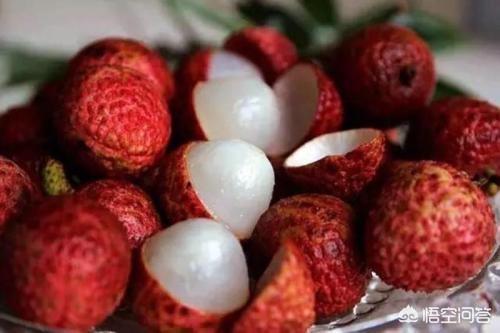
Eating lychee and why it's hypoglycemic.
For healthy patients, if you consume a large amount of lychee at once, it will stimulate the body to secrete a large amount of insulin, even after you have eaten lychee with all this sugar completely metabolized, there will still be a lot of insulin in the body.
So?This excess insulin in the body is able to cause a drop in the body's own blood sugar, so the body experiences hypoglycemia.
It is also often reported in the news that people suffer from hypoglycemia due to heavy consumption of lychee.
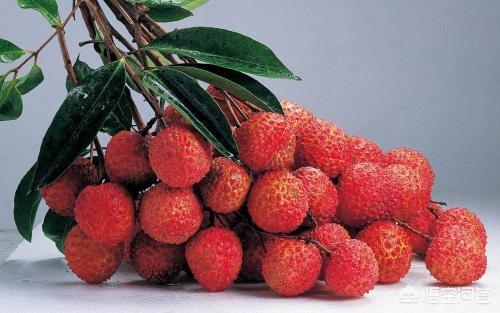
stillLittle Eye tells you that the idea of diabetic patients eating large quantities of lychee is completely wrong.
compared to healthy people.Insulin secretion in diabetics itself is deficient. Most patients are type 2 diabetics, where the body's sensitivity to insulin is poor, and type 1 diabetics, where the body produces even less insulin.
Therefore, if a diabetic patient consumes large quantities of lychee will developThe problem of giving up the opposite.
Not only is insulin itself unable to metabolize its own blood sugar, but also because its own body'sA large increase in blood glucose leads to a sharp rise in blood sugar.
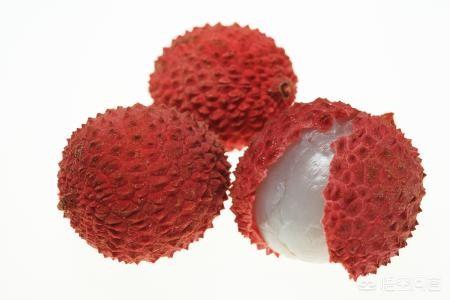
A sharp increase in blood glucose is not only bad for your health, but you are also prone to ketoacidosis and hyperglycemic metabolism, all of which can be very dangerous for the patient.
Eating moderately and lowering sugar scientifically is what every diabetic needs to pay attention to.
I'm Dr. Small Eyes.
Like me if you like my answer!
Feel free to follow me if you think my answer makes sense
Let me know if you think my answer is not good enough by replying

Thanks for the invite.
Lychee is definitely a blood sugar-raising food. The glycemic index of lychee is very high, and eating lychee in a short period of time can cause a spike in blood sugar, so it is not advisable to eat too much lychee for people with diabetes and high blood sugar.
So why do some people experience a drop in blood sugar when they eat too much lychee?
This is a possible situation for those who have good pancreatic ability. If you eat a lot of lychee in a short period of time, your blood sugar is bound to skyrocket, and the only hormone in your body that can lower your blood sugar is insulin, which is actively released, and if you release too much insulin in a short period of time, your blood sugar may be lower than usual due to the excessive efficiency of transporting glucose; or for those who are more highly endowed, who suddenly present a high blood sugar level, and then have their insulin work desperately to lower their blood sugar in a flash, then there may be symptoms of hypoglycemia. Blood sugar, there will be symptoms of hypoglycemia. In fact, it is not good if blood sugar rises and falls too abruptly, which is more harmful to the body, and it is the most suitable state to maintain stable blood sugar in general.
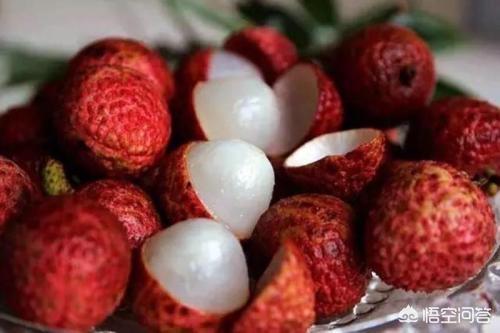
Therefore, eating lychee symptoms of hypoglycemia in diabetes and high blood sugar friends certainly will not appear, because their insulin secretion is a problem, let alone a short period of time a large number of secretion so that blood sugar suddenly lowered the situation. Therefore, eating lychee to lower blood sugar is definitely the wrong way.
Do not eat too much lychee on a daily basis, if you really want to eat, you can eat two or three at the stage of blood sugar is more stable, choose to eat between meals and hunger, can prevent hypoglycemia occurs.
"Eating three hundred litchis a day, I will not quit being a Lingnan man." Su Shi's poem, "One of the Best of Huizhou/Eating Lychee", has been recited for thousands of years, describing the deliciousness of lychee and how one can go out of one's way for this delicacy.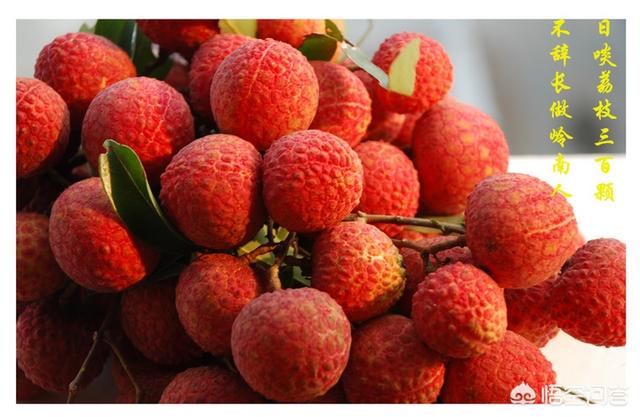 However, in recent years, there have been many reports in the media of hypoglycemic episodes caused by over-eating lychee in different people. Most of the patients in the reports showed symptoms such as cold sweat, pallor, generalized weakness, panic, dizziness, and obvious hunger pangs, and in severe cases, there could be chills in the limbs, a thin pulse, a drop in blood pressure, and even symptoms such as convulsions and sudden coma. This is indeed due to the body's hypoglycemic reaction caused by eating large quantities of fresh lychee. Mild symptoms can be relieved by taking sugar cubes orally, while severe cases require further hospitalization. So why did hypoglycemia occur after eating too much sweet lychee?
However, in recent years, there have been many reports in the media of hypoglycemic episodes caused by over-eating lychee in different people. Most of the patients in the reports showed symptoms such as cold sweat, pallor, generalized weakness, panic, dizziness, and obvious hunger pangs, and in severe cases, there could be chills in the limbs, a thin pulse, a drop in blood pressure, and even symptoms such as convulsions and sudden coma. This is indeed due to the body's hypoglycemic reaction caused by eating large quantities of fresh lychee. Mild symptoms can be relieved by taking sugar cubes orally, while severe cases require further hospitalization. So why did hypoglycemia occur after eating too much sweet lychee?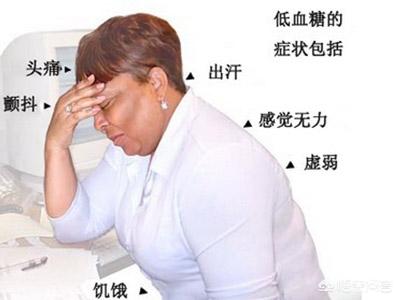
Some studies have found that lychee contains two special substances, namely hypoglycine A and methylenecyclopropylglycine. These two substances can destroy the body's dehydrogenase enzyme, which ultimately leads to disruption of fatty acid metabolism, thus affecting normal fat oxidation and gluconeogenesis, thus disrupting the body's ability to generate glucose, which in extreme cases can lead to the occurrence of acute hypoglycemia.
Dr. Zhang here also want to give you a final reminder, in addition to lychee, but also longan, red mulberry, these fruits of the Sapindaceae family also contains hypoglycemic A, these fruits eat more may also lead to hypoglycemic episodes, be careful.
For more reliable medical science, click to follow.
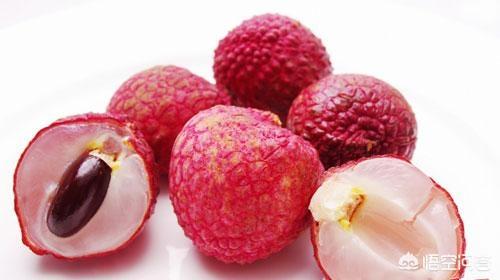
It's lychee season again, many people like to eat lychee, juicy and sweet, is indeed one of the seasonal very tasty fruit. But some people are worried, the lychee tastes so sweet, how can there be reports that eating too much will appear hypoglycemia? This lychee eat in the end is to lower blood sugar or rise blood sugar? How to eat healthy lychee? Together for everyone to sort out.
Lychee is high in sugar and the rise in blood sugar is undeniable!
Lychee in the fruit is really high sugar fruit, and lychee in the sugar to fructose, glucose, sucrose-based, after eating really fast blood sugar. For sugar lovers, lychee is really a "red light" fruit, so try not to eat or eat less. Even normal blood sugar people should not eat, high sugar fruit eat more, one will cause obesity, but will cause digestive discomfort.
Eating large quantities of lychee can lead to hypoglycemia, not that lychee has the function of lowering blood sugar!
It is true that there are reports about a large number of eating or fasting lychee after the symptoms of hypoglycemia, serious and life-threatening, this is not a rumor, of course, not because lychee can lower blood sugar, lychee is not insulin. That's because when a large number of eating or fasting lychee, the human body will reflexively secrete insulin to reduce blood sugar, insulin secretion and caused by excessive hypoglycemic reaction. This reaction is also known as "lychee disease".
To summarize, lychee is very tasty, but when consumed, one should control the amount, and sugar lovers should eat with caution. Eat also reduce the intake of other foods high in sugar. Secondly, we must remember that lychee itself is a food, and does not have the function of lowering blood sugar, just a large number or fasting to eat will appear low blood sugar "lychee disease".
This question and answer are from the site users, does not represent the position of the site, such as infringement, please contact the administrator to delete.